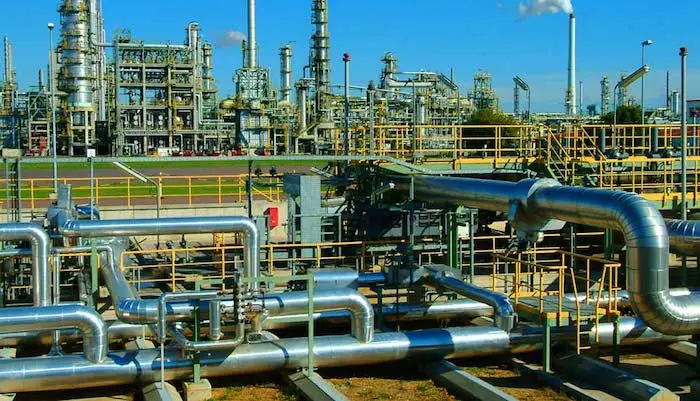Nigeria’s decades-long struggle with its state-owned refineries has once again been exposed as a costly illusion. Despite spending over $3 billion on a massive rehabilitation program, the three major refineries in Port Harcourt, Warri, and Kaduna remain dormant, their facilities decaying, their workers idle, and their host communities disillusioned. What was once presented as a bold step to restore domestic refining capacity and reduce dependence on imported fuel has instead become another chapter in the long history of missed deadlines, corruption allegations, and economic sabotage that has plagued the oil sector. Investigations reveal that the government’s promises of resuscitation have failed spectacularly, leaving the Economic and Financial Crimes Commission (EFCC) probing alleged financial mismanagement while citizens pay the price in higher costs of living.
At the heart of this saga lies the paradox of Nigeria: Africa’s top crude oil producer is unable to refine enough petroleum products to serve its own population. This has forced the country to rely almost entirely on imported fuel, draining foreign reserves, enriching middlemen, and perpetuating a cycle of subsidies and corruption. Successive governments have promised to end the cycle through refinery rehabilitation, but the story has been one of futility. The current administration inherited a rehabilitation contract exceeding $3 billion, touted as the most comprehensive effort in history, yet the refineries remain silent, their giant machines rusting away as workers clock in and out without any real duties.
The failure is most glaring at the Port Harcourt Refining Company (PHRC), Nigeria’s largest refining complex. Built in two phases — a 60,000 barrels per day plant in 1965 and a 150,000 barrels per day unit in 1989 — it once stood as a symbol of industrial ambition, producing petrol, diesel, kerosene, and petrochemicals. By 2019, however, age, mismanagement, and vandalism had forced a complete shutdown. In 2021, the government approved a $1.5 billion rehabilitation plan in three phases, with promises that by 2025, the facility would return to full capacity. Mele Kyari, then Chief Executive of the Nigerian National Petroleum Company Limited (NNPCL), publicly assured Nigerians that the refinery had resumed partial operations in November 2024, claiming output of millions of litres of diesel, kerosene, and petrol daily.
But these promises quickly crumbled. By May 2025, NNPCL announced a 30-day shutdown for “routine maintenance,” a move that immediately sparked skepticism among industry stakeholders. Local petroleum retailers accused the government of deceiving Nigerians, pointing to empty depots and inactive plants. Visits to the site revealed silence: no loading trucks, no visible activity, and workers lounging around administrative offices. Only limited amounts of diesel from old stock were being released, and even that was reserved largely for major marketers like NNPC and Oando, leaving independent retailers priced out. Community leaders expressed frustration, insisting that government announcements about resumption were nothing more than propaganda. By August 2025, NNPCL quietly admitted “errors” in the rehabilitation process, effectively conceding that the project was incomplete.
Warri Refining and Petrochemical Company tells a similar tale of unfulfilled promises. Commissioned in 1978 with a capacity of 125,000 barrels per day, it was once a hub for fuels and petrochemicals. Shut down in 2015 after years of vandalism and technical failures, it became one of the beneficiaries of the $1.4 billion allocated in 2021 for the combined rehabilitation of Warri and Kaduna refineries. Of that sum, nearly $900 million was earmarked for Warri. On December 30, 2024, the government declared that Warri had resumed operations, with Kyari again projecting 60 percent capacity. The declaration was greeted with optimism in Delta State, but reality proved harsher. When journalists visited the facility in mid-2025, they found an eerily quiet complex, with no production, empty tanker parks, and no flares visible from the chemical plants.
Staff members admitted privately that they showed up for work but had little to do beyond paperwork. A source within the company said bluntly: “The refinery is not working. People are just collecting salaries.” Another suggested that minor maintenance work was ongoing, pending a new directive from the current NNPCL leadership, but no one could say when actual refining would begin. For communities that once thrived around the economic activity of Warri Refinery, the silence has been devastating. Shops that once sold food and services to refinery workers now stand empty, and the once-bustling truck parks lie deserted.
If Port Harcourt and Warri represent broken promises, Kaduna Refining and Petrochemical Company represents something worse: abandonment. Commissioned in 1980 with a 110,000 barrels per day capacity, it was designed to process both light and heavy crude, producing a range of fuels and petrochemicals. For decades it was central to northern Nigeria’s energy supply and economic life. But today, the facility is lifeless, its massive compound reduced to a ghost town. A lone police post with a fading signboard is the only sign of activity. Locals recall when the skies above Kapam community glowed with refinery flames and workers filled the streets. Today, they describe silence, unemployment, and dashed hopes.
In 2023, the NNPCL signed a $740 million contract for a “quick-fix” of Kaduna, promising 60 percent output by December 2024. As with other refineries, the deadline passed without results. Billions of naira have been spent, yet not a drop of fuel has been produced. The EFCC has begun probing the contracts, grilling former NNPCL executives accused of mismanaging funds. A former engineer at the plant warned that the prolonged dormancy was causing irreversible corrosion, making future rehabilitation even harder. From over 1,200 workers, fewer than 100 remain, many of them underemployed. For residents of Kapam, the collapse of the refinery has wrecked local businesses, reduced incomes, and deepened poverty.
The human cost of these failures is staggering. While billions of dollars vanish into opaque contracts, ordinary Nigerians face skyrocketing fuel prices, rising transport costs, and inflation. Communities that once thrived on refinery activity are now economic wastelands. Independent marketers complain of being excluded from fuel lifting, leaving them at the mercy of private depots where prices are unaffordable. Workers at the refineries, though still drawing salaries, describe their jobs as meaningless, often clocking in without assignments. The nation’s dependence on imported fuel continues to drain scarce foreign reserves and enrich foreign refiners, even as local refineries remain monuments of waste.
The systemic failure of Nigeria’s refineries is not new. Since the early 2000s, successive governments have announced turnaround maintenance programs, each costing millions of dollars, yet none have succeeded in restoring production. Critics argue that these rehabilitation contracts have become vehicles for corruption, with contractors and officials enriching themselves while delivering little. The cycle repeats itself every few years: new promises, new funds, new fanfare — and the same outcome of silence and decay. The ongoing EFCC investigation into the latest $3 billion contract is only the latest attempt to address a decades-old rot that seems resistant to reform.
The political implications are profound. President Bola Tinubu’s administration has anchored its economic reforms on difficult choices like fuel subsidy removal and tax reforms, arguing that painful sacrifices are necessary for long-term stability. But the collapse of the refinery rehabilitation plan undermines this argument, as citizens question why billions can vanish without accountability while they bear the burden of higher fuel costs. For communities in Rivers, Delta, and Kaduna States, the government’s failure is not an abstract policy issue but a lived reality of poverty, broken promises, and mistrust.
Stakeholders argue that the solution may lie not in further rehabilitation of decrepit state-owned refineries but in embracing private-sector investment, as exemplified by the Dangote Refinery. With a capacity of 650,000 barrels per day, Dangote Refinery is expected to meet most of Nigeria’s domestic fuel needs once fully operational. Yet even here, delays, policy conflicts, and pricing disputes have slowed progress. Without a coherent national refining strategy, Nigeria risks perpetuating the same cycle of dependency and waste.
For now, the Port Harcourt, Warri, and Kaduna refineries stand as ghostly reminders of squandered opportunities. Gates rusting, furnaces cold, tanker parks empty, and workers idle — they embody the contradictions of a nation rich in crude but poor in refined products. They also represent the broader failure of governance that has left Nigerians skeptical of official promises. As one Kapam resident summed it up bitterly: “This is like the coming of Jesus Christ. Everybody is waiting, but it is not coming.”
The NNPCL insists that detailed technical and commercial reviews are ongoing and that it remains committed to restoring the refineries to full operations. But for Nigerians, such assurances ring hollow. After decades of deception, patience has worn thin. Unless there is real accountability for the billions spent and a decisive shift in strategy, the ghost refineries will continue to haunt Nigeria’s economy and its people.




